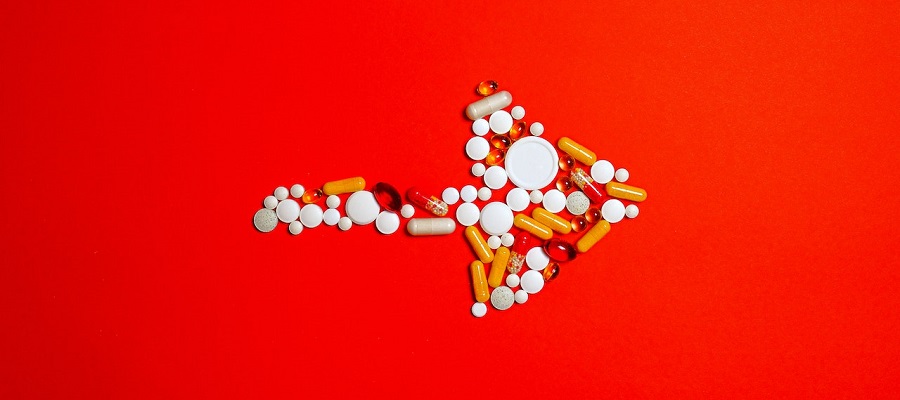Zinc is an essential mineral that is important for a variety of functions in the human body. It is involved in immune system function, wound healing, taste and smell, and the synthesis of DNA, among other things. Zinc is found in a variety of foods, including meat, seafood, dairy products, whole grains, nuts, and legumes. It is also available as a dietary supplement.
The recommended dietary allowance (RDA) for zinc varies depending on age and gender. Adult men and women should aim to consume 8 and 7 milligrams of zinc per day, respectively. Pregnant and lactating women may need slightly more. Most people can get sufficient amounts of zinc from their diet, but those who have certain medical conditions or follow a vegetarian or vegan diet may be at risk of zinc deficiency. In these cases, a zinc supplement may be necessary.
Zinc is generally considered safe when taken in recommended amounts. However, high doses of zinc can cause side effects such as nausea, vomiting, and diarrhea. It is important to speak with a healthcare provider before starting a zinc supplement, as excessive zinc intake can interfere with the absorption of other minerals and may have other potential health risks.
To what extent food rich in zinc is useful?
Zinc is an essential mineral that has many important functions in the body. Some of the ways in which zinc is useful include:
- Supporting immune system function: Zinc plays a role in the production and function of immune cells, and it may help to reduce the severity and duration of certain infections.
- Promoting wound healing: Zinc is involved in the synthesis of collagen, which is a key component of connective tissue and is necessary for wound healing.
- Maintaining taste and smell: Zinc is important for the proper function of taste and smell receptors.
- Supporting DNA synthesis: Zinc is involved in the synthesis of DNA, which is the body's genetic material.
- Regulating growth and development: Zinc is necessary for normal growth and development during childhood and adolescence.
- Maintaining vision: Zinc is essential for the health of the eye and is involved in the metabolism of vitamin A, which is important for vision.
- Supporting skin health: Zinc plays a role in skin health and may be helpful in the treatment of acne and other skin conditions.
In addition to these functions, research suggests that zinc may have other potential health benefits, such as reducing the risk of certain chronic diseases, such as cancer and heart disease. However, more research is needed to fully understand the role of zinc in these areas.
Zinc is an essential mineral that is important for a wide range of physiological processes in the body. It is necessary for the proper functioning of the immune system, wound healing, taste, smell, and vision, as well as DNA synthesis and protein metabolism. It is also involved in the regulation of gene expression, growth, and development.
Foods that are rich in zinc include animal proteins such as meat, poultry, and seafood, as well as plant-based sources such as beans, nuts, and whole grains. Zinc is also found in fortified foods such as cereals and supplements.
One of the main benefits of zinc is its role in immune function. Zinc is necessary for the proper functioning of white blood cells, which are the body's primary defense against infection. Inadequate zinc intake can lead to a suppressed immune system and an increased risk of infections. Zinc supplements have been shown to reduce the severity and duration of certain infections, such as the common cold.
Zinc is also important for wound healing. It plays a role in the formation of collagen, a protein that is necessary for the repair of tissues. Adequate zinc intake can help to speed up the healing process and reduce the risk of scarring.
Zinc is necessary for the proper functioning of the senses of taste and smell. It is also involved in the metabolism of vitamin A, which is important for vision. Zinc deficiency has been linked to a loss of taste and smell, as well as night blindness.
In addition to its physiological functions, zinc is also important for growth and development. It is necessary for DNA synthesis and protein metabolism, and it plays a role in the regulation of gene expression. Zinc deficiency has been linked to stunted growth in children, and adequate zinc intake is necessary for normal growth and development during pregnancy and infancy.
Overall, food rich in zinc is useful for a wide range of physiological processes in the body. Adequate zinc intake is necessary for immune function, wound healing, taste, smell, vision, and growth and development. However, it is important to consume zinc in moderation, as excessive intake can lead to negative side effects such as gastrointestinal distress and impaired absorption of other minerals.
Is zinc harmful and Why?
Zinc is an essential mineral that is necessary for a wide range of physiological processes in the body, including immune function, wound healing, taste, smell, and vision, as well as DNA synthesis and protein metabolism. It is also involved in the regulation of gene expression, growth, and development.
In general, zinc is not harmful when consumed in appropriate amounts. The recommended daily intake of zinc for adults is 8-11 mg per day for men and 8 mg per day for women. Most people are able to meet their zinc needs through a varied diet that includes foods such as meat, poultry, seafood, beans, nuts, and whole grains. Zinc is also found in fortified foods such as cereals and supplements.
However, excessive intake of zinc can lead to negative side effects. High levels of zinc can interfere with the absorption of copper, a mineral that is also essential for health. Copper deficiency can cause anemia, osteoporosis, and abnormal heart function.
In addition, excessive zinc intake can cause gastrointestinal distress, such as nausea, vomiting, and diarrhea. It can also impair the immune system and increase the risk of infections.
Chronic high levels of zinc can also cause toxicity, which can lead to symptoms such as stomach cramps, nausea, vomiting, and diarrhea. In severe cases, zinc toxicity can cause kidney damage and anemia.
It is important to consume zinc in moderation to avoid negative side effects. Zinc supplements should be taken only under the supervision of a healthcare professional, as they can interact with certain medications and may not be appropriate for everyone.
Overall, zinc is not harmful when consumed in appropriate amounts, but excessive intake can lead to negative side effects. It is important to consume zinc in moderation and to get it from a varied diet that includes foods such as meat, poultry, seafood, beans, nuts, and whole grains, rather than relying solely on supplements.
which food is rich in zinc?
Zinc is an essential mineral that is necessary for a wide range of physiological processes in the body, including immune function, wound healing, taste, smell, and vision, as well as DNA synthesis and protein metabolism. It is also involved in the regulation of gene expression, growth, and development.
There are many foods that are rich in zinc, both animal-based and plant-based. Animal-based sources of zinc include:
- Meat: Beef, pork, and lamb are all good sources of zinc.
- Poultry: Chicken and turkey are also good sources of zinc.
- Seafood: Oysters, crab, and lobster are particularly high in zinc. Other types of seafood such as salmon and cod also contain zinc, although in smaller amounts.
Plant-based sources of zinc include:
- Beans: Legumes such as chickpeas, lentils, and kidney beans are good sources of zinc.
- Nuts: Nuts such as almonds, peanuts, and cashews are also good sources of zinc.
- Whole grains: Whole grains such as oats, quinoa, and whole wheat are good sources of zinc.
Zinc is also found in fortified foods such as cereals and supplements. Fortified foods are those that have been enriched with additional nutrients, including zinc.
It is important to consume a varied diet that includes a variety of sources of zinc in order to meet your daily needs for this essential mineral. It is also important to consume zinc in moderation, as excessive intake can lead to negative side effects such as gastrointestinal distress and impaired absorption of other minerals.
Overall, there are many foods that are rich in zinc, including animal-based sources such as meat, poultry, and seafood, as well as plant-based sources such as beans, nuts, and whole grains. It is important to consume a varied diet that includes a variety of sources of zinc in order to meet your daily needs for this essential mineral.
which meals is rich in zinc?
Zinc is an essential mineral that is necessary for a wide range of physiological processes in the body, including immune function, wound healing, taste, smell, and vision, as well as DNA synthesis and protein metabolism. It is also involved in the regulation of gene expression, growth, and development.
There are many meals that are rich in zinc, both animal-based and plant-based. Some examples of meals that are rich in zinc include:
- Grilled chicken with quinoa and roasted vegetables: Chicken is a good source of zinc, and quinoa and vegetables are good plant-based sources of the mineral.
- Beef stir-fry with noodles and vegetables: Beef is a good source of zinc, and noodles and vegetables can also provide some zinc.
- Salmon with brown rice and steamed broccoli: Salmon is a good source of zinc, and brown rice and broccoli are good plant-based sources of the mineral.
- Chickpea and vegetable curry with rice: Chickpeas are a good source of zinc, and vegetables can also provide some of the mineral.
- Lentil soup with whole grain bread: Lentils are a good source of zinc, and whole grain bread is also a good plant-based source of the mineral.
It is important to consume a varied diet that includes a variety of sources of zinc in order to meet your daily needs for this essential mineral. It is also important to consume zinc in moderation, as excessive intake can lead to negative side effects such as gastrointestinal distress and impaired absorption of other minerals.
Overall, there are many meals that are rich in zinc, including those that include animal-based sources such as meat and seafood, as well as plant-based sources such as beans, nuts, and whole grains. It is important to consume a varied diet that includes a variety of sources of zinc in order to meet your daily needs for this essential mineral.


